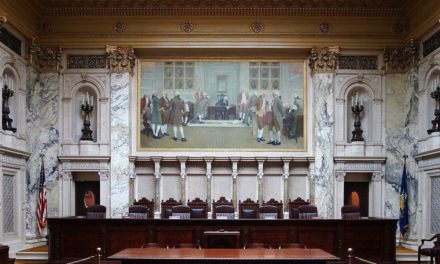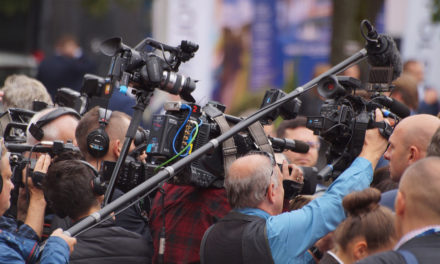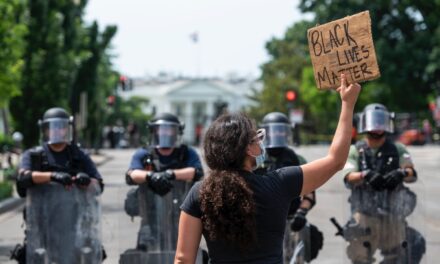Cohen (right) was described as acting as Netanyahu’s ‘unofficial messenger’ in the operation against Bensouda (centre). Composite: Guardian Design
The former head of the Mossad, Israel’s foreign intelligence agency, allegedly threatened a chief prosecutor of the international criminal court in a series of secret meetings in which he tried to pressure her into abandoning a war crimes investigation, the Guardian can reveal.
Yossi Cohen’s covert contacts with the ICC’s then prosecutor, Fatou Bensouda, took place in the years leading up to her decision to open a formal investigation into alleged war crimes and crimes against humanity in occupied Palestinian territories.
That investigation, launched in 2021, culminated last week when Bensouda’s successor, Karim Khan, announced that he was seeking an arrest warrant for the Israeli prime minister, Benjamin Netanyahu, over the country’s conduct in its war in Gaza.
The prosecutor’s decision to apply to the ICC’s pre-trial chamber for arrest warrants for Netanyahu and his defence minister, Yoav Gallant, alongside three Hamas leaders, is an outcome Israel’s military and political establishment has long feared.

Cohen (right) was appointed as director of the Mossad by Netanyahu in 2016 after working for several years as his national security adviser. Photograph: Gali Tibbon/AFP/Getty Images
Cohen’s personal involvement in the operation against the ICC took place when he was the director of the Mossad. His activities were authorised at a high level and justified on the basis the court posed a threat of prosecutions against military personnel, according to a senior Israeli official.
Another Israeli source briefed on the operation against Bensouda said the Mossad’s objective was to compromise the prosecutor or enlist her as someone who would cooperate with Israel’s demands.
A third source familiar with the operation said Cohen was acting as Netanyahu’s “unofficial messenger”.
Cohen, who was one of Netanyahu’s closest allies at the time and is emerging as a political force in his own right in Israel, personally led the Mossad’s involvement in an almost decade-long campaign by the country to undermine the court.
Four sources confirmed that Bensouda had briefed a small group of senior ICC officials about Cohen’s attempts to sway her, amid concerns about the increasingly persistent and threatening nature of his behaviour.

ICC prosecutor requests arrest warrants for Netanyahu, Gallant and three Hamas leaders – video
Three of those sources were familiar with Bensouda’s formal disclosures to the ICC about the matter. They said she revealed Cohen had put pressure on her on several occasions not to proceed with a criminal investigation in the ICC’s Palestine case.
According to accounts shared with ICC officials, he is alleged to have told her: “You should help us and let us take care of you. You don’t want to be getting into things that could compromise your security or that of your family.”
One individual briefed on Cohen’s activities said he had used “despicable tactics” against Bensouda as part of an ultimately unsuccessful effort to intimidate and influence her. They likened his behaviour to “stalking”.
The Mossad also took a keen interest in Bensouda’s family members and obtained transcripts of secret recordings of her husband, according to two sources with direct knowledge of the situation. Israeli officials then attempted to use the material to discredit the prosecutor.
The revelations about Cohen’s operation form part of a forthcoming investigation by the Guardian, the Israeli-Palestinian publication +972 Magazine and the Hebrew-language outlet Local Call, revealing how multiple Israel intelligence agencies ran a covert “war” against the ICC for almost a decade.
Contacted by the Guardian, a spokesperson for Israel’s prime minister’s office said: “The questions forwarded to us are replete with many false and unfounded allegations meant to hurt the state of Israel.” Cohen did not respond to a request for comment. Bensouda declined to comment.

The ICC case dates back to 2015, when Fatou Bensouda decided to open a preliminary examination into the situation in Palestine. Photograph: Pacific Press Media Production Corp/Alamy
In the Mossad’s efforts to influence Bensouda, Israel received support from an unlikely ally: Joseph Kabila, the former president of the Democratic Republic of the Congo, who played a supporting role in the plot.
Revelations about the Mossad’s efforts to influence Bensouda come as the current chief prosecutor, Khan, warned in recent days that he would not hesitate to prosecute “attempts to impede, intimidate or improperly influence” ICC officials.
According to legal experts and former ICC officials, efforts by the Mossad to threaten or put pressure on Bensouda could amount to offences against the administration of justice under article 70 of the Rome statute, the treaty that established the court.
A spokesperson for the ICC would not say whether Khan had reviewed his predecessor’s disclosures about her contacts with Cohen, but said Khan had never met or spoken to the head of the Mossad.
While the spokesperson declined to comment on specific allegations, they said Khan’s office had been subjected to “several forms of threats and communications that could be viewed as attempts to unduly influence its activities”.
Bensouda sparks ire of Israel
Khan’s decision to seek arrest warrants against Netanyahu and Gallant last week marked the first time the court had taken action against leaders of a country closely allied with the US and Europe. Their alleged crimes – which include directing attacks on civilians and using starvation as a method of warfare – relate to the eight-month war in Gaza.
The ICC case, however, dates back to 2015, when Bensouda decided to open a preliminary examination into the situation in Palestine. Short of a full investigation, her inquiry was tasked with making an initial assessment of allegations of crimes by individuals in Gaza, the West Bank and East Jerusalem.
Bensouda’s decision sparked the ire of Israel, which feared its citizens could be prosecuted for their involvement in operations in Palestinian territories. Israel had long been open about its opposition to the ICC, refusing to recognise its authority. Israeli ministers intensified their attacks on the court and even vowed to try to dismantle it.
Soon after commencing the preliminary examination, Bensouda and her senior prosecutors began to receive warnings that Israeli intelligence was taking a close interest in their work.

Yossi Cohen during a reception held at the Israeli foreign ministry in Jerusalem, in May 2018. Photograph: Amir Cohen/Reuters
According to two sources, there were even suspicions among senior ICC officials that Israel had cultivated sources within the court’s prosecution division, known as the office of the prosecutor. Another later recalled that although the Mossad “didn’t leave its signature”, it was an assumption the agency was behind some of the activity officials had been made aware of.
Only a small group of senior figures at the ICC, however, were informed that the director of the Mossad had personally approached the chief prosecutor.
A career spy, Cohen enjoys a reputation in Israel’s intelligence community as an effective recruiter of foreign agents. He was a loyal and powerful ally of the prime minister at the time, having been appointed as director of the Mossad by Netanyahu in 2016 after working for several years at his side as his national security adviser.
As the head of the national security council between 2013 and 2016, Cohen oversaw the body that, according to multiple sources, began to coordinate a multiagency effort against the ICC once Bensouda opened the preliminary inquiry in 2015.
Cohen’s first interaction with Bensouda appears to have taken place at the Munich security conference in 2017, when the Mossad director introduced himself to the prosecutor in a brief exchange. After this encounter, Cohen subsequently “ambushed” Bensouda in a bizarre episode in a Manhattan hotel suite, according to multiple sources familiar with the incident.

Bensouda with Joseph Kabila in New York. Sources claim the then DRC leader played an important supporting role in the Mossad’s plot against the ICC’s chief prosecutor. Photograph: ICC
Bensouda was in New York in 2018 on an official visit, and was meeting Kabila, then the president of the DRC, at his hotel. The pair had met several times before in relation to the ICC’s ongoing investigation into alleged crimes committed in his country.
The meeting, however, appears to have been a setup. At a certain point, after Bensouda’s staff were asked to leave the room, Cohen entered, according to three sources familiar with the meeting. The surprise appearance, they said, caused alarm to Bensouda and a group of ICC officials travelling with her.
Why Kabila helped Cohen is unclear, but ties between the two men were revealed in 2022 by the Israeli publication TheMarker, which reported on a series of secretive trips the Mossad director made to the DRC throughout 2019.














